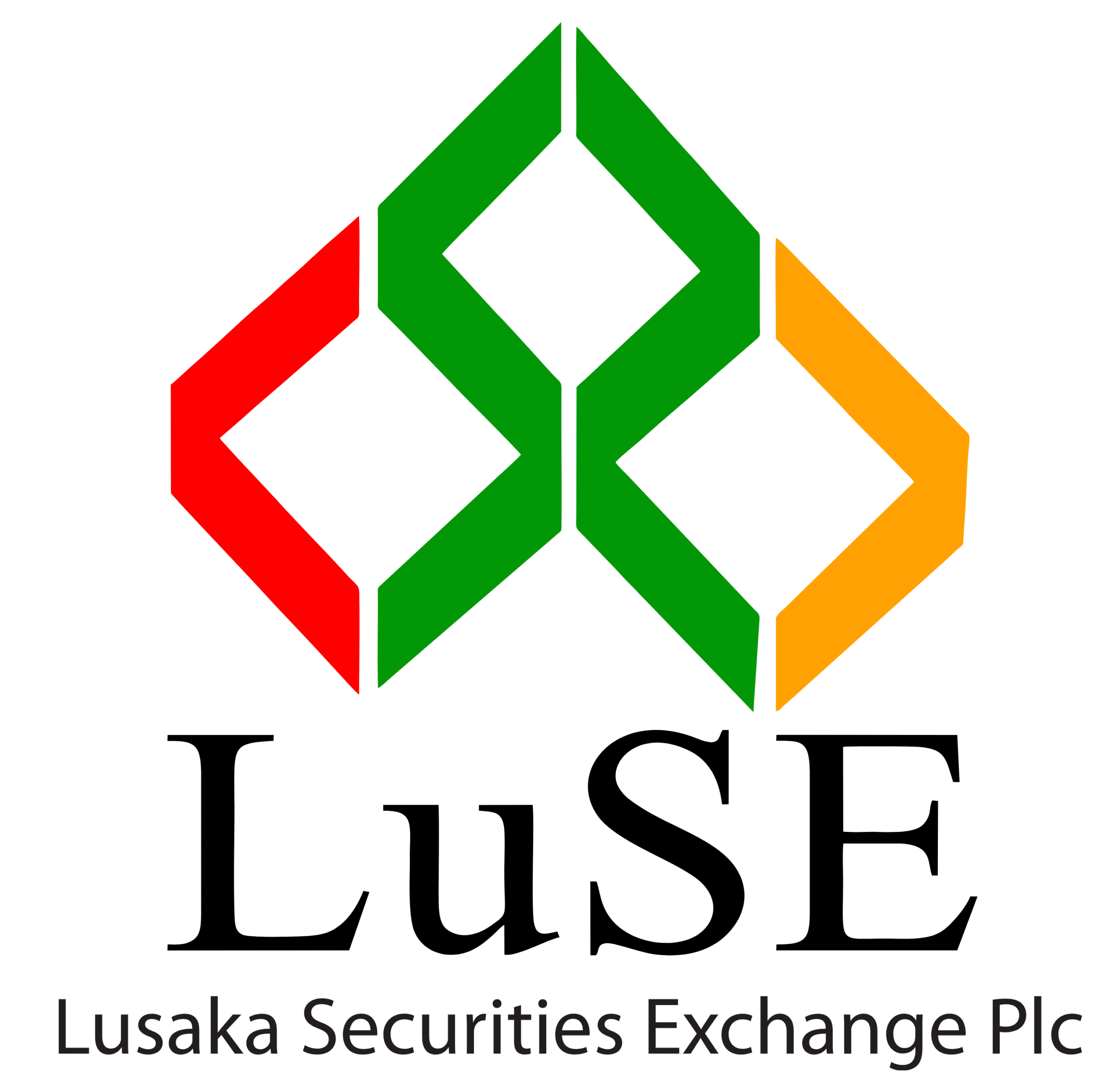FAQs
A stockbroker is a LuSE member , licensed by SEC Zambia to buy and sell securities on the LuSE on behalf of investors. To start the process of investing on the LuSE, the stockbroker will request the investor to open an account with them
– A national registration card/passport A document showing proof of physical address e.g. a lease agreement with a landlord, title deeds to a property or utility bill
– Two passport size photos Note that brokers will require that a minimum amount be deposited with them when opening the account.
Note:
The stockbroker will advise on which investments that are listed or quoted on the LuSE. They will be able to advise you based on your investment preferences. Once you make a decision, the broker will be able to transact on the LuSE market on your behalfHow to monitor one’s investment on the LuSE
It is very easy to track one’s investments on the LuSE. Closing share prices can be obtained freely from the LuSE website (www.luse.co.zm), Facebook and Twitter pages (Lusaka Securities Exchange). They are also aired on weekdays on the Zambia National Broadcasting Corporation (ZNBC) Main Evening News The LuSE also has value added subscription services in the form of the daily stock news,The weekly stock News andmonthly news Flash.The subscription rates for the same are as follows:
Daily Stock News – K3.50 per copy/K882 Annual subscription.
LuSE Weekly Stock News – K4 per copy/K208 Annual subscription.
Monthly News Flash – K25 per copy/K300 Annual subscription.
It would also be bene cial for you to engage with your broker on a regular basis to keep up with various market trends.
The term security refers to a fungible, negotiable financial instrument that holds some type of monetary value. Simply put, Securities are instruments for raising finance by the shareholder or a company. There are two types of securities
offered on the LuSE: Equity and Debts securities.
Equity securities, which are also known as shares or stocks, give one part ownership of a company and with it a right to a share of a company’s dividends.
Debt securities represent debt issued by an organisation. They can be issued by a company or government. They are usually issued for a fixed term and the amount of capital represented has to be paid back to their owner, at the end of the debt security term. Debt securities usually carry an
interest charge (coupon) which is paid to their holders at specific periods during the debt security’s term.
A listed company is a company which is able to issue its securities for trading on the LuSE. To be listed, the company is characterized by the following:
– Is a public limited company (Plc)
– Has met the LuSE Listing Requirements
– Has had the listing approved by the LuSE board and have paid the listing fee commensurate with the market value of their issued capital
An investment in LUSE instruments are among the safest investments that one can make. All companies that have their securities listed or quoted on the LuSE are required to publish in print media, information that can materially affect the
value of the price of one ‘s securities. In addition, all are required to abide by the LuSE’s Corporate Governance code which has guidelines on how the management and directors of listed and quoted companies must conduct their affairs. Failure to publish information that can materially affect a
company’s share price, as well as not adhering to LuSE’s Corporate Governance code can result in severe penalties to
the directors and management of a company that has instruments that are listed or quoted on the LuSE.
There are principal ways in which a party benefts from
investing in shares.The first is through the payment of a
dividend, whilst the second is via the price appreciation of the shares that are bought, the share’s capital gain. Taken together, these two factors determine your return on holding shares In a company. If for example you bought a share for K10 and the share price has risen to K12 and you
have received dividends worth K1 from the company that issued the shares, then your total return from holding the share is 30% the K2 price appreciation + the K1 dividend/K10
price paid for the share
Dividends are divided up among ordinary shareholders according to how many shares they own in a company. For example, if a company pays dividends worth K1,000,000, a
party who owns 10% of the company shares will receive
dividends worth K100,000 (10% of K1,000,000). Companies usually quote their dividend payment to shareholders per share, e.g. In the financial year ending 2021, Company X will
issue a dividend of K 1.00 per share
This is entirely up to the directors of the company. Generally, most companies payout dividends at least once a year. If a company has been operating favorably, it may pay out dividends twice a year – usually after every six month period.
A dividend that is paid out during the course of a company’s operating year is known as an interim dividend. A dividend that is paid out after the close of a company’s financial year is
known as a final dividend
Capital gain/loss is the price appreciation/depreciation in the
value of the shares held by an investor. It is the difference
between the price at which an investor bought the shares
and what the shares are worth today. If for example the price
of a share was K10 when an investor bought it and it is worth
k15 today, then the person who bought the shares has
enjoyed a capital gain of 50% (K15-K10=K5). If however the
price of the share has fallen to K5, then the investor that
bought shares at K10 has a net capital loss of 50%
(K5-K10=-K5).











